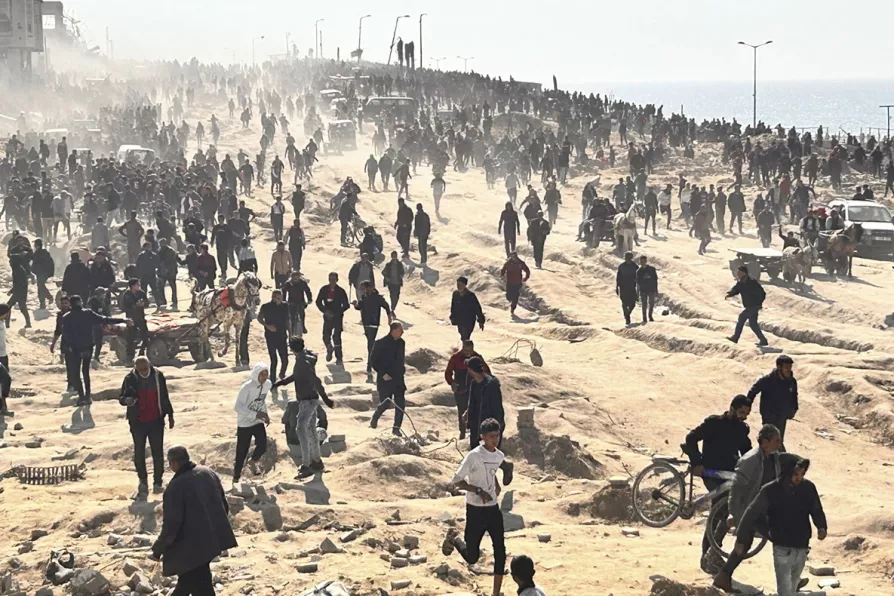Israel fails to comply with ICJ aid order and intensified Gaza repression

 Palestinians wait for humanitarian aid on a beachfront in Gaza City, Gaza Strip, February 25, 2024
Palestinians wait for humanitarian aid on a beachfront in Gaza City, Gaza Strip, February 25, 2024
ISRAEL has failed to comply with an International Court of Justice (ICJ) order to provide urgently needed aid to Gaza, instead intensifying its brutal military campaign, Human Rights Watch (HRW) said today.
A quarter of the Palestinian territory’s 2.3 million people are currently facing starvation amid Israel’s ongoing war, with an average of just 57 aid lorries entering the region daily in the past month.
The United Nations has said that around 500 daily deliveries are needed to address the situation.
Similar stories

Israeli media awash with leaks and rumours of Netanyahu’s plans to seize Gaza. Meanwhile, the unrelenting siege of Gaza continues unabated

Barely 100 trucks enter as bombs kill another 60

Aid group accuses Tel Aviv of deliberate ethnic cleansing in latest damning report

More than 60 signatories urge Foreign Minister to sanction Israel in line with ICC and ICJ










